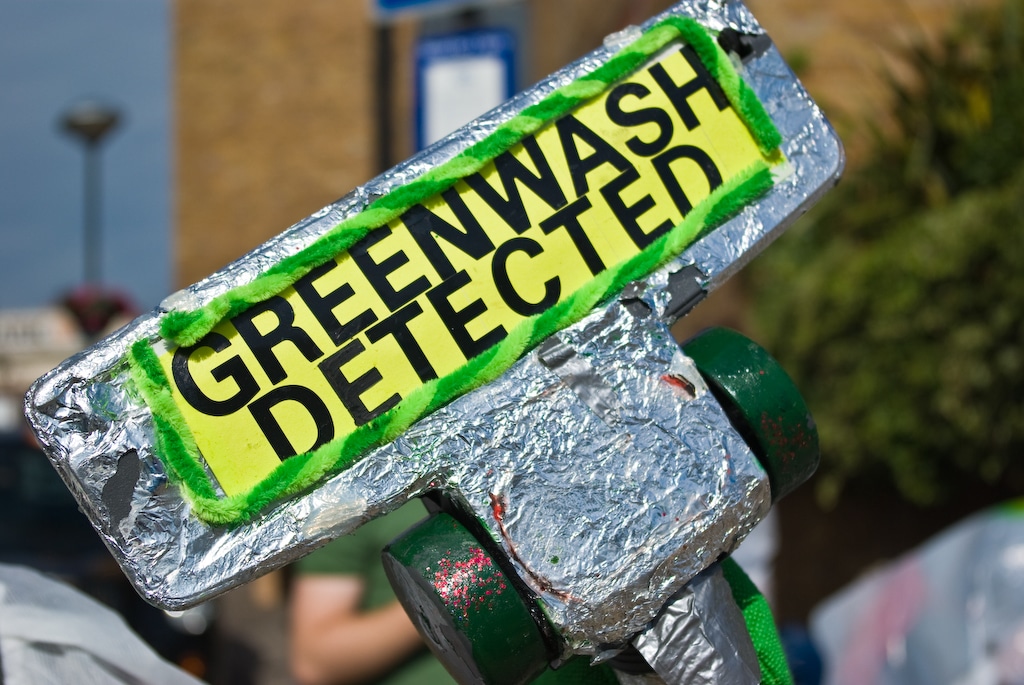In recent years, there has been an upsurge in environmental consciousness, manifesting in a slew of “environmentally friendly” measures and initiatives aimed at tackling various ecological issues. Governments, corporations, and individuals have rallied around seemingly noble environmental actions, but it is imperative to examine the effectiveness of these efforts. While many initiatives are presented as solutions to our pressing environmental challenges, a closer inspection reveals that some of these measures might be more symbolic than substantive.
—
Paper Is Not Much More Sustainable Than Plastic
Due to plastic’s lack of biodegradability and renewability, companies have switched to paper as a replacement. They may be unaware of it, but using paper is not a much greener alternative. Here are some reasons why:
- Dying trees: Manufacturing paper to replace plastic involves cutting down trees. If paper products replace the existing plastic ones (mainly bags and straws) at the current frequency of use, the scale of demand would have far-reaching negative impacts on the planet such as habitat loss and lowered carbon sequestration.
- Limited reusability: Paper bags are not as durable or long-lasting as plastic bags. This can result in a shorter lifespan and inevitably also more consumption of paper bags over time.
- Increased energy consumption: The production of paper products involves more water and energy consumption than that of plastic products. The pulping, processing, and bleaching of wood fibres to make paper require substantial amounts of water and energy resources. This can contribute to environmental stressors such as water scarcity and increased greenhouse gas emissions.
- Recycling challenges: While paper bags can be recycled, the recycling process itself consumes energy and resources. Moreover, if paper bags are contaminated with food residue, oils, or other substances, they might not be suitable for recycling and could end up in landfills or incineration facilities.
What About Tote Bags and Metal Straws?
The fact that many plastic products are for single use has caused us to turn to reusable products as environmentally friendly alternatives. Here are some reasons why this shift does not work:
- Resource-intensive production: Tote bags, metal straws, and glass straws require a lot more water, energy, and chemicals to produce than plastic bags and straws. Though durable and reusable, the environmental benefits of these items depend on how often they are actually reused: If a metal straw is only used a few times before being forgotten and discarded, its environmental impact may be higher than expected.
- High production, low usage: How many free tote bags have you received? How many of those carry the brand of an organisation? From companies to wedding couples, more groups have been mass-distributing tote bags and “eco-friendly” cutlery. Though objectives may be noble, repeated mass purchase of these items does not ensure the intended lifestyle change and leads to more waste.
You might also like: We Need Sustainable Food Packaging Now. Here’s Why.
“Reusable” Travel Utensil Sets
That pastel-coloured takeout container made of recycled plastic may send eco-friendly vibes, however, it is important to understand the real environmental impact before buying it:
- Repeated manufacturing: “Eco-friendly” utensil sets are marketed as “reusable” and “portable”. Consumers often buy or gift these without realising the obvious – the cutlery we own at home is already reusable and portable. Promoting and selling newly manufactured “eco-friendly” goods perpetuate a consumption-driven culture that inherently relies on resource extraction, manufacturing, and transportation. The same applies to the purchase of anything that performs a function of something we already own: tumblers, “Last Tissue”, tote bags, and so on.
- Impracticality: The desire for environmental conservation seems to have grown with modernisation, but so has our love for convenience in a fast-paced world. The purchase of new utensil sets only outweighs the environmental cost of production if used frequently enough to make up for the impact of the manufacture of disposables. Unfortunately, the intended green lifestyle that supposedly inspired these fashionable items may be catching on too slowly. Moreover, these items are often simply impractical or unusable – for instance, wooden or bamboo cutlery tends to be shallow, small, soft, and ineffective.
- Toxins from recycled material: Recycled plastic contains toxins from original materials, affecting human health and the environment. Needless to say, the recycling process itself consumes energy.
“Eco-friendly” Labels and Claims
As the global community becomes more affluent and educated and is exposed to a growing range of choices, “ethical” is the buzzword for purchase. However, the claim does not always mean what we think it does. We should be wary to avoid being susceptible to greenwashing:
- Replacements for plastic may look and feel more green, though it may actually be doing more harm to our earth.
- Some fashion labels claim to be ethical, but this may just be a front to drive up sales. “Green” or “eco-friendly” can sometimes be misleading, as the criteria for such designations vary widely and may not reflect a holistic environmental impact.
Genuinely Green
Looking at the ways some of us may have been hoodwinked into thinking we were doing the earth a favour; some may feel overwhelmed by the ingenuity and ubiquity of companies who are just out to get our buck, turning our green intentions into nothing. Here are some ways to ensure we are making environmentally friendly choices:
- Remember the R’s in order of their importance: Firstly, reduce usage and purchase wherever you can. Then, reuse as much as possible. Only turn to recycling when the first two options have been exhausted.
- Think long term: With any new purchase, consider the entire lifecycle of a product – from raw material extraction to production, transportation, and disposal. Buy only if the purchase would effectively lead to a greener lifestyle that makes up for the manufacturing.
- Be wary of the motivations of “green” claims.
Concluding Thoughts
While seemingly environmentally friendly products have gained prominence and applause, it is crucial to remain vigilant and critical in evaluating their true effectiveness. Addressing complex environmental challenges demands a deeper commitment than simply adopting superficial initiatives. To create a meaningful impact, efforts should be directed toward systemic changes, comprehensive policies, and a shift in societal values. By examining the true impact of our choices and demanding more substantial actions, we can strive for a genuinely sustainable future rather than settling for illusory solutions.
You might also like: 8 Sustainable Packaging Solutions to Solve the Plastic Waste Dilemma


















